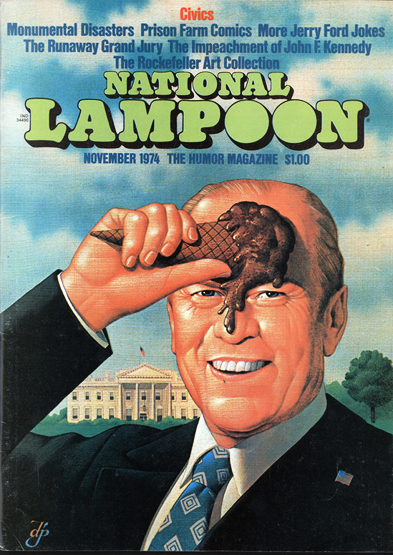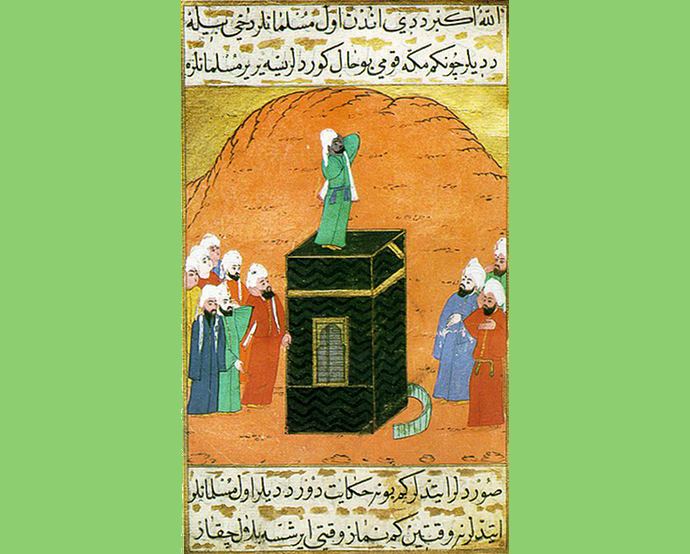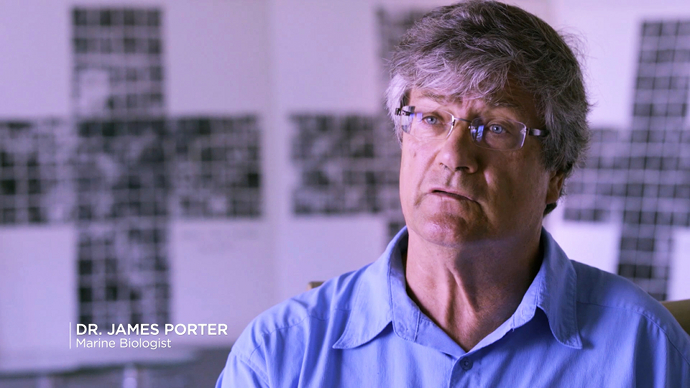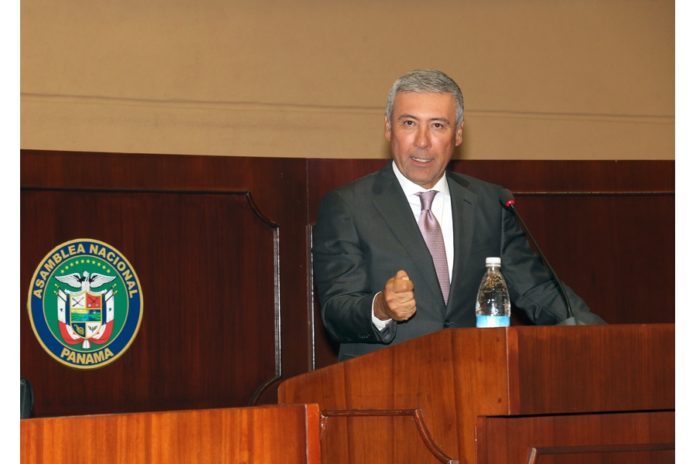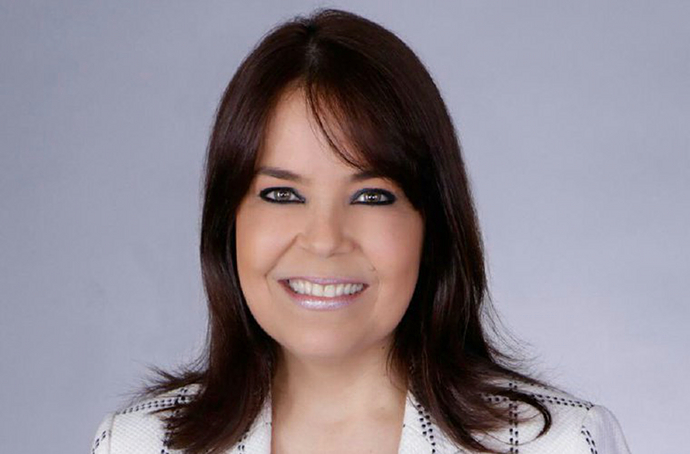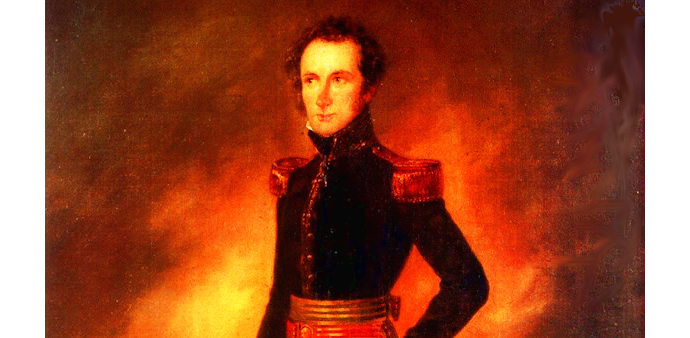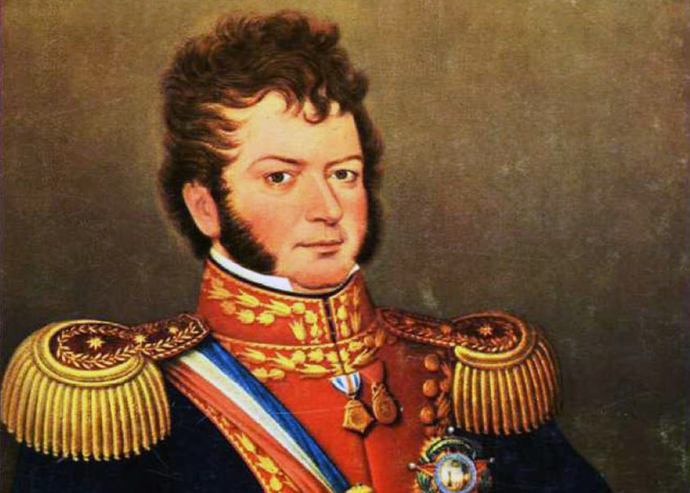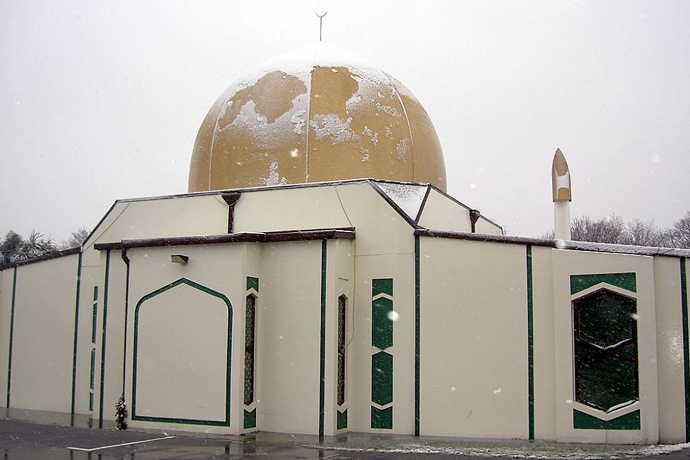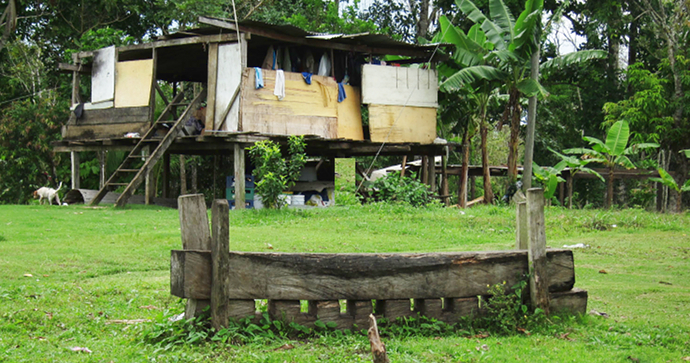Country Report on Human Rights Practices for 2018 – Panama
by the US Department of State
EXECUTIVE SUMMARY
Panama is a multiparty constitutional democracy. In 2014 voters chose Juan Carlos Varela Rodriguez as president in national elections that international and domestic observers considered generally free and fair.
Civilian authorities maintained effective control over the security forces.
Human rights issues included undue restrictions on free expression, the press, and the internet, including censorship, site blocking, and criminal libel; and widespread corruption.
The Varela administration and the Public Ministry continued investigations into allegations of corruption against public officials.
Section 1. Respect for the Integrity of the Person, Including Freedom from:
a. Arbitrary Deprivation of Life and Other Unlawful or Politically Motivated Killings
There were no reports the government or its agents committed arbitrary or unlawful killings.
b. Disappearance
There were no reports of disappearances by or on behalf of government authorities.
c. Torture and Other Cruel, Inhuman, or Degrading Treatment or Punishment
The constitution prohibits such practices, and there were no reports that government officials employed them.
In 2017 civilian correctional officers used batons and tear gas to control inmates who refused to be transported. Penitentiary System authorities investigated the incident and dismissed the case, citing evidence that showed standard procedures were enforced due to serious misconduct by the inmates. In May the Ombudsman’s Office decried the possible use of excessive force and the conclusion of the penitentiary authorities.
Prison and Detention Center Conditions
Prison conditions remained harsh, due primarily to overcrowding, a shortage of prison guards, and inadequate medical services and sanitary conditions.
Physical Conditions: As of August the prison system, with an intended capacity of 14,842 inmates, held 16,069 prisoners. Pretrial detainees shared cells with convicted prisoners due to space constraints. Prison conditions for women were generally better than for men, but conditions for both populations remained poor, with some overcrowded facilities, poor inmate security and medical care, and a lack of basic supplies for personal hygiene. Female inmates had access to more rehabilitation programs than male inmates.
There were 1,170 prison guards nationwide, including 60 new guards hired during the year. Officials estimated, however, the system required 2,870 guards to staff the prisons adequately, according to international standards. Authorities acknowledged that staff shortages limited exercise time for inmates on certain days. Juvenile pretrial and custodial detention centers also suffered from a lack of prison officials. Authorities acknowledged that staff shortages limited exercise time for inmates on certain days. Juvenile pretrial and custodial detention centers also suffered from an insufficient number of prison officials.
One prison, Punta Coco, falls under the control of the Ministry of Public Security rather than the Ministry of Government’s National Directorate of the Penitentiary System (DGSP). In March the Inter-American Commission on Human Rights (IACHR) reiterated its request to close Punta Coco due to the lack of appropriate medical attention for inmates. Lawyers and relatives of the inmates had to travel 66 miles by boat to reach the prison, located on an island. In August authorities transferred 12 inmates temporarily from the Punta Coco facility to a Panama City prison while they upgraded it to international prison standards by orders of the Supreme Court of Justice. It was reopened on December 6, and the 12 prisoners were transferred back to the facility.
The Ministry of Health conducted fewer vaccination campaigns in prisons, compared with previous years. HIV/AIDS treatment was available, but insulin was scarce throughout the country, which affected provisions for inmates.
Prison medical care overall was inadequate due to the lack of personnel, transportation, and medical resources. Sixty percent of complaints received by the Ombudsman’s Office from January through August related to the lack of access to medical attention and medications. Authorities permitted relatives of inmates to bring medicine, although there were reports that some relatives paid bribes to prison personnel, including police agents, to bypass the required clearances. Authorities transferred patients with serious illnesses to public clinics, but there were constant difficulties arranging inmate transportation. Inmates often missed medical appointments with specialized physicians. Because the DGSP did not have ambulances, inmates were transported in police vehicles or in emergency services ambulances when available. Emergency services ambulances staff were reluctant to service the prisons. Lack of prison guards also affected the transfers.
As of August, 17 male inmates had died in custody, most from natural causes or disease. One inmate died due to inmate-on-inmate violence.
Administration: Authorities conducted proper investigations of credible allegations of mistreatment.
Independent Monitoring: The government permitted prison monitoring by independent nongovernmental observers. The Ombudsman’s Office conducted unannounced visits to the prisons without restrictions. Human rights nongovernmental organizations (NGOs) seeking access to prisons during visiting hours were required to send a written request to the DGSP 15 days in advance.
Improvements: During the year a new centrally based system for better tracking of prisoners and statistics was implemented, and the data was published on a public website.
d. Arbitrary Arrest or Detention
The law prohibits arbitrary arrest and detention and provides for the right of any person to challenge the lawfulness of his or her arrest or detention in court, and the government generally observed these prohibitions.
Role of the Police and Security Apparatus
The country has no military forces. The Panama National Police (PNP) is principally responsible for internal law enforcement and public order. Civilian authorities in the Ministry of Public Security and the Ministry of the Presidency maintained effective control over all police, investigative, border, air, maritime, and migration services in the country. The government has mechanisms to investigate and punish abuse and corruption, but information on the process and results of investigations were rarely made public. Penitentiary authorities remained concerned over internal corruption, since unannounced inspections during the year resulted in findings of larger than usual amounts of drugs and illegal items in inmates’ possession. Due to the insufficient number of prison guards, the PNP was sometimes responsible for security both outside and inside the prisons. PNP leadership expressed concern over insufficient training and equipment.
Arrest Procedures and Treatment of Detainees
The law requires arresting officers to inform detainees immediately of the reasons for arrest or detention and of the right to immediate legal counsel. Detainees gained prompt access to legal counsel and family members, and the government provided indigent defendants with a lawyer.
The country completed its transition to an accusatory justice system in 2016, but cases opened prior to the transition continued to be processed under the previous inquisitorial system, known for its vulnerability to corruption, inefficiencies, and bureaucratic hurdles.
Under the accusatorial system, bail exists but was rarely granted because of the implementation of a less costly provisional release system. Under the inquisitorial system, a functioning bail procedure existed for a limited number of crimes but was largely unused. Most bail proceedings were at the discretion of the Prosecutor’s Office and could not be independently initiated by detainees or their legal counsel. Bail was granted in high-profile corruption cases, which prompted complaints by civil society about the Public Ministry’s administering “selective” justice.
The law prohibits police from detaining adult suspects for more than 48 hours but allows authorities to detain minor suspects for 72 hours. In the accusatorial system, arrests and detention decisions were made on a probable cause basis.
Pretrial Detention: Under the inquisitorial system, the government regularly imprisoned inmates for more than one year before a pretrial hearing, and in some cases pretrial detention exceeded the minimum sentence for the alleged crime. According to the DGSP director, 52 percent of inmates were pretrial detainees as of July.
Some observers criticized the judiciary for applying unequal pretrial restrictive measures for individuals facing substantially similar charges. Prosecutors also reported internal pressure from the Public Ministry to prevent release of those accused of crimes pending trial.
e. Denial of Fair Public Trial
While the law provides for an independent judiciary, the judicial system was inefficient and susceptible to corruption as well as internal and external influence, and it faced allegations of manipulation by the executive branch. In August a judge dismissed corruption charges against 22 government officials. Among the accused were individuals who had considerable influence in the community.
Court proceedings for cases in process under the inquisitorial system were not publicly available, while accusatory system cases were. As a result nonparties to the inquisitorial case proceedings did not have access to these proceedings until a verdict was reached. Under the inquisitorial system, judges could decide to hold private hearings and did so in high-profile cases. Consequently the judiciary sometimes faced accusations, particularly in high-profile cases, of procedural irregularities. Since most of these cases had not reached conclusion, however, the records remained under seal. Interested parties generally did not face gag orders, but because of this mechanism, it was difficult to verify facts.
Trial Procedures
The law provides for the right to a fair and public trial, and the judiciary generally enforced this right. The law provides that all citizens charged with crimes enjoy the right to a presumption of innocence. They have the right to be informed promptly and in detail of the charges (with free interpretation as necessary for non-Spanish speaking inmates), to have a trial without undue delay, to have counsel of their choice and adequate time and facilities to prepare a defense, to refrain from incriminating themselves or close relatives, and to be tried only once for a given offense. The accused may be present with counsel during the investigative phase of proceedings.
During the year new criminal cases were tried under the accusatory system. Under this system, trials were open to the public. All trials must be completed in less than 18 months. Judges may order the presence of pretrial detainees for providing or expanding upon statements or for confronting witnesses. Trials are conducted based on evidence presented by the public prosecutor. Defendants have the right to be present at trial and to consult with an attorney in a timely manner, along with the right to enter into a plea deal. Defendants may confront or question adverse witnesses and present their own witnesses and evidence. Defendants have a right of appeal. The judiciary generally enforced these rights.
The judiciary complained that many hearings were canceled due to inmates’ failure to appear, especially those involving inmates processed under the old inquisitorial system. This was usually due to administrative shortcomings, such as a dearth of PNP agents to transfer the inmates to the courts. Authorities were also aware that available correctional officers and PNP agents focused more on inmates tried under the new accusatory system because the law fines police and correctional officers 100 balboas (one balboa is equal to one US dollar) for failing to deliver an inmate to a hearing.
The judiciary continued to promote videoconference hearings. Judges were receptive to using this tool, and during the year the government continued to add video conference and hearing rooms to prison facilities.
Political Prisoners and Detainees
There were no credible reports of political prisoners or detainees.
Civil Judicial Procedures and Remedies
Citizens have access to the courts to bring lawsuits seeking damages for, or cessation of, human rights violations, although most do not pursue such lawsuits due to the length of the process. There are administrative and judicial remedies for alleged wrongs, and authorities often granted them to citizens who followed through with the process. The court can order civil remedies, including fair compensation to the individual injured. Individuals or organizations may initiate cases involving violations of an individual’s human rights by submitting petitions to the IACHR.
The 2016 Community Justice System, which provides another path for citizens to seek redress for human rights violations, entered into effect in January. Although peace judges were appointed, lack of municipal funds throughout the country prevented the assignment of professional-level salaries for the judges as well as the relocation of the facilities for administrative or community justice to be served. The peace judges replaced the 679 corregidores under the 77 mayors nationwide. The corregidor system, a leftover of the military regime, was considered for years an unfair process that violated human rights through unjustified imprisonment imposed by unqualified, politically influenced “judges.” Training for National Police agents and Judicial Investigative agents on the new system was also insufficient.
f. Arbitrary or Unlawful Interference with Privacy, Family, Home, or Correspondence
The law prohibits arbitrary interference with privacy, family, home, or correspondence, and the government generally respected these prohibitions. The law also sets forth requirements for conducting wiretap surveillance. It denies prosecutors authority to order wiretaps on their own and requires judicial oversight.
The investigation of the 2015 illegal wiretapping case against former president Ricardo Martinelli as well as against Alejandro Garuz and Gustavo Perez, two former intelligence directors in his administration, continued during the year. Hearings under the accusatorial system against Martinelli began in June upon his extradition from the United States. Hearings under the inquisitorial system against Garuz and Perez took place on September 3-14.
Section 2. Respect for Civil Liberties, Including
a. Freedom of Expression, Including for the Press
The constitution provides for freedom of expression, including for the press, and the government generally respected this right. Nevertheless, journalists and media outlets noted an increase in criminal and civil libel/slander lawsuits, which they considered a threat to freedom of expression and freedom of the press.
Libel/Slander Laws: Former and sitting government public figures increased the use of libel/slander lawsuits against journalists and media. According to local media contacts, both criminal and civil lawsuits were filed. The amount of lawsuits and the figures of financial compensation by plaintiffs increased substantially during the year, according to media groups. In September the daily newspaper La Estrella de Panama reported that lawsuits against journalists and media outlets for libel/slander reparations reached $12 million. The major media corporation Corprensa reported lawsuits against its two daily publications, La Prensa and Mi Diario, totaled $61.7 million. Corprensa representatives added they had been sued 15 times for libel/slander since 2017, once more than the previous 10 years combined (14 lawsuits filed in 2006-16).
On August 21, five journalists from La Prensa appeared at a family court hearing in response to former first lady Marta de Martinelli’s lawsuit seeking “protection” for “family image.” She sought a court order for “media, print, television, radio and social media, and especially the newspaper La Prensa,” to stop publishing the names and surnames of her family, who were under investigation for alleged corruption.
On August 25, former president Martinelli, in prison and on trial for illegal wiretapping, filed a slander lawsuit for two million dollars against political opinion radio-show hostesses Annette Planells and Mariela Ledezma.
On September 5, journalists, journalism organizations, and students demonstrated against the lawsuits, claiming such lawsuits were attacks against freedom of speech and the press.
Violence and Harassment: In August and September, National Assembly Deputy Sergio Galvez verbally harassed television journalists Alvaro Alvarado, Castalia Pascual, and Icard Reyes, and National Assembly Deputy Carlos Afu publicly threatened to sue La Prensa for $20 million. Both deputies made their statements on the National Assembly floor; according to the constitution, deputies may not held liable for these actions.
Press and Media Freedom: With the enactment of the 2017 electoral reforms regulating the 2019 general elections, there was to be a blackout period for the publication of voter polling 20 days before the national elections, scheduled for May 2019. TVN Media, one of the country’s largest media groups, challenged the law in the Supreme Court, arguing the blackout would hinder the public’s access to information because political parties would continue to carry out private surveys.
Internet Freedom
The government did not restrict or disrupt access to the internet or censor online content, and there were no credible reports that the government monitored private online communications without appropriate legal authority.
According to the International Telecommunication Union, 58 percent of the population used the internet in 2017.
Academic Freedom and Cultural Events
There were no government restrictions on academic freedom or cultural events.
b. Freedoms of Peaceful Assembly and Association
The law provides for the freedoms of peaceful assembly and association, and the government generally respected these rights. The government provided permits for organized groups to conduct peaceful marches. Police at times used force to disperse demonstrators, especially when highways or streets were blocked. The law provides for six to 24 months’ imprisonment for anyone who, through use of violence, impedes the transit of vehicles on public roads or causes damage to public or private property.
c. Freedom of Religion
See the Department of State’s International Religious Freedom Report.
d. Freedom of Movement
The law provides for freedom of internal movement, foreign travel, emigration, and repatriation and the government generally respected these rights. The government generally cooperated with the Office of the UN High Commissioner for Refugees (UNHCR) and other humanitarian organizations in providing protection and assistance to refugees, persons under temporary humanitarian protection, asylum seekers, and other persons of concern.
Protection of Refugees
Access to Asylum: The law provides for the granting of asylum or refugee status, and the government has established a system for providing protection to refugees. In January the Ministry of Government issued an executive decree to regulate the protection of refugees, abolishing the previous decree from 1998. The National Office for the Attention of Refugees (ONPAR) declared the reforms were positive and necessary. The decree increases the frequency of the approval board meetings and reduces wait times for final decisions through improved processing and the implementation of a computerized application process. International organizations and NGOs criticized the new decree because it did not include the Cartagena Declaration definition of refugee, nor did it provide applicants with work permits. The new decree also stipulates a six-month waiting period after entering the country before applying for refugee status, and it establishes a summary proceeding to deny refugees who have “manifestly unfounded claims” as determined by ONPAR. In August the government issued a resolution detailing which claims will be considered “manifestly unfounded.” NGOs believed this would further limit access to refugee status and leave more persons in need of international protection. The process of obtaining refugee status generally took one to two years, during which asylum seekers did not have the right to work and encountered difficulties accessing basic services.
In March the government and UNHCR signed a cooperation agreement to train border personnel in identification and referral of persons needing international protection. The government also signed two protocols for the protection of children who migrate: a protocol for identification, referral, and attention for minors requiring international protection, and an institutional protocol for protecting minors who migrate.
In June the government announced it would deport 70 Cuban migrants sheltered in Darien, on the border with Colombia, and in July the government reported that 37 Cubans were placed in the shelter located on the border with Costa Rica. The government continued to manage camps in the Darien region to provide food, shelter, and medical assistance to the migrants. The government reported continued migrations of persons from South Asia, India, and Africa.
According to UNHCR and its NGO implementing partners, thousands of persons living in the country might be in need of international protection. These included persons in the refugee process, persons denied refugee status, and persons who did not apply for refugee status due to lack of knowledge or fear of deportation.
Employment: Refugees recognized by authorities have the right to work, but recognized refugees complained that they faced discriminatory hiring practices. In an effort to prevent this discriminatory practice, ONPAR removed the word “refugee” from recognized refugees’ identification cards. By law individuals in the process of applying for asylum do not have the right to work.
All foreigners seeking a work contract must initiate the process through a lawyer and pay a government fee of 700 balboas to obtain a work permit that expires upon termination of the labor contract or after one year, whichever comes first.
Access to Basic Services: Education authorities sometimes denied refugees access to education and refused to issue diplomas to others if they could not present school records from their country of origin. The Ministry of Education continued to enforce the government’s 2015 decree requiring schools to accept students in the asylum process at the grade level commensurate with the applicants’ prior studies.
Durable Solutions: The law allows persons legally recognized as refugees or with asylum status who have lived in the country for more than three years to seek permanent residency.
Stateless Persons
The government continued to work with Colombia to recognize approximately 200 stateless persons on the border. The governments of Panama and Costa Rica, with the cooperation of UNHCR, continued to use a mobile registry office on the border with Costa Rica to register indigenous Ngabe and Bugle seasonal workers who travel between Costa Rica and Panama and who had not registered their births in either country.
Section 3. Freedom to Participate in the Political Process
The law provides citizens the ability to choose their government in free and fair periodic elections held by secret ballot based on universal and equal suffrage. Naturalized citizens may not hold specified categories of elective office, such as the presidency.
Elections and Political Participation
Recent Elections: In 2014 voters chose Juan Carlos Varela Rodriguez as president in national elections that independent observers considered generally free and fair. Elected at the same time were 71 national legislators, 77 mayors, 648 local representatives, and seven council members.
Political Parties and Political Participation: The law requires new political parties to meet strict membership and organizational standards to gain official recognition and participate in national campaigns. Electoral reforms passed in May 2017 require that political parties obtain the equivalent of 2 percent of the total votes cast to maintain legal standing, a reduction from 4 percent. The Revolutionary Democratic Party, Panamenista Party, Democratic Change Party, and Popular Party complied with the requirement. During the year the Electoral Tribunal granted legal status to new political groups registered with the Electoral Tribunal, including the Broad Front for Democracy, the Alliance Party (Alianza), and the Independent Social Alternative Party after they demonstrated compliance with electoral requirements. The Electoral Tribunal provided oversight of internal party elections.
Participation of Women and Minorities: No laws limit participation of women or members of minorities in the political process, and they did participate.
In August the National Secretariat of Science, Technology, and Innovation released a study in coordination with the Catholic University of Santa Maria Antigua. The study, titled Gender Inequality for Women in Access to Elected Office, showed that female candidates for elected office had only a 2 percent chance to win election. Research showed that from 1945 to 2014, only 67 women were elected to the National Assembly, compared with 764 men. Researchers concluded that contributing factors included cultural barriers, unequal social opportunities, a lack of mechanisms to equalize effectively internal political opportunity, and unequal access to campaign funds.
Section 4. Corruption and Lack of Transparency in Government
The law provides criminal penalties for corruption by officials, and the government generally implemented these laws effectively. Corruption remained a serious problem in the executive, judicial, and legislative branches as well as in the security forces. The government took steps to address corrupt practices among government employees and security forces. Anticorruption mechanisms such as asset forfeiture, whistleblower and witness protection, plea bargaining, and professional conflict-of-interest rules were used in the government’s efforts to combat corruption.
Corruption: A series of corruption scandals became public from May through August as the Comptroller General’s Office filed before the Supreme Court separate cases against deputies from all political parties represented in the National Assembly. Alleged corruption by deputies involved the following: relatives registered in National Assembly payrolls despite their not working there; dozens of workers from the private sector (restaurants, hotels, stores) who appeared on deputies’ payrolls (some without knowing it; some allegedly receiving a percentage of the salary collected monthly and the deputy pocketing the rest); political community leaders working for deputies in their districts and not for the National Assembly but on the assembly’s payrolls; salaries of workers from private companies owned by deputies being paid by National Assembly payrolls; and direct contracts awarded to companies owned by some deputies. As of August no charges had been filed against any of the deputies, but civil society outrage prompted the beginning of the “No reelection” movement for the May 2019 general elections.
Corruption and a lack of accountability among police continued to be a problem, although the government took steps to address violations. Agents were dismissed on grounds of corruption and were under investigation by the Public Ministry. After an 18-month investigation, in July the First Penal District Court held a preliminary hearing involving 12 individuals (four current and three former penitentiary system employees, two inmates, and three private individuals) for alleged corruption in the La Joya Prison, La Joyita Prison, and the Women’s Rehabilitation Center. According to inmates’ relatives, the group charged money for the alteration of documents to reduce sentences, falsify release orders, and improperly transfer inmates among prisons. The prosecutor requested the judge to press charges on 11 of the 12 conspirators.
In February the Comptroller General’s Office filed 186 audits before the Public Ministry for transactions between 2009 and 2014 by elected local representatives. The audits allegedly reflected misuse of public funds through irregular contracts carried out by the Martinelli administration’s National Assistance Program. As of November prosecutors continued with the investigations but had not filed charges.
In July the First Criminal Court tried Luis Cucalon, former internal revenue director under the Martinelli administration, on embezzlement and corruption charges. In September Cucalon was convicted and sentenced to nine years in prison and forfeiture of six million balboas.
The case continued against former minister of the presidency Demetrio “Jimmy” Papadimitriu and former minister of public works Jaime Ford, both in the Martinelli administration, detained in September for alleged links to bribes paid by Brazilian multinational construction company Odebrecht. In August the Second Superior Tribunal refused to withdraw the charges or dismiss the case as requested by Papadimitriu’s lawyers. Both individuals faced money-laundering and corruption charges. They were released on bail but could not leave the country without a court order. The cases remained under the inquisitorial system.
Financial Disclosure: The law requires certain executive and judiciary officials to submit a financial disclosure statement to the Comptroller General’s Office. The information is not made public unless the official grants permission for access to the public.
Section 5. Governmental Attitude Regarding International and Nongovernmental Investigation of Alleged Abuses of Human Rights
A number of domestic and international human rights groups generally operated without government restriction, investigating and publishing their findings on human rights cases. Government officials generally were cooperative and responsive to their views.
Government Human Rights Bodies: The ombudsman, elected by the National Assembly, has moral but not legal authority. The Ombudsman’s Office received government cooperation and operated without government or party interference; it referred cases to the proper investigating authorities.
Section 6. Discrimination, Societal Abuses, and Trafficking in Persons
Women
Rape and Domestic Violence: The law criminalizes rape of men or women, including spousal rape, with prison terms of five to 10 years. The government generally implemented criminal aspects of the law better than protection aspects. Rapes constituted the majority of sexual crimes investigated by the PNP and its Directorate of Judicial Investigation.
The law against gender violence stipulates stiff penalties for harassment and both physical and emotional abuse. The law states that sentencing for femicide is a mandatory 25 to 30 years in prison. Officials and civil society organizations agreed that domestic violence continued to be a serious crime. In August the PNP initiated the Specialized Unit for Domestic and Gender Violence with 190 agents trained to work these cases. As of June there were 7,773 reported cases of domestic violence nationwide.
The Ombudsman’s Office continued its program Mujer Conoce tus Derechos (Woman, Know Your Rights), which included a wide distribution of flyers. The government, through the National Institute for Women’s Affairs, operated shelters for victims of domestic abuse and offered social, psychological, medical, and legal services. The secretary general of the Ombudsman’s Office and the director of the Panamanian Observatory Against Gender Violence claimed the number of shelters was insufficient.
Sexual Harassment: The law prohibits sexual harassment in cases of employer-employee relations in the public and private sectors and in teacher-student relations. Violators face a maximum three-year prison sentence. The extent of the problem was difficult to determine, because convictions for sexual harassment were rare, pre-employment sexual harassment was not actionable, and there was a lack of formal reports.
Coercion in Population Control: There were no reports of coerced abortion or involuntary sterilization.
Discrimination: The law prohibits discrimination based on gender, and women enjoyed the same legal status and rights as men. The law recognizes joint property in marriages. The law mandates equal pay for men and women in equivalent jobs. Although an illegal hiring practice, some employers continued to request pregnancy tests.
The Ministry of Social Development and the National Institute of Women promoted equality of women in the workplace and equal pay for equal work, attempted to reduce sexual harassment, and advocated legal reforms. In February President Varela signed a law prohibiting harassment and racism. The prior law sanctioned sexual harassment but not labor harassment or bullying. The law mandates equal rights for labor and measures to prevent discrimination as well as respect of the norms established in the international human rights conventions signed by the country. It establishes fines for employers or immediate supervisors who fail to follow the law and instructs the Ministries of Education, Social Development, and Labor, in conjunction with the University of Panama, to develop educational programs for the awareness of these rights.
Children
Birth Registration: The law provides citizenship for all persons born in the country, but parents of children born in remote areas sometimes had difficulty obtaining birth registration certificates. The National Secretariat for Children, Adolescents, and the Family estimated the registration level of births at 92 percent.
Child Abuse: The Ministry of Social Development maintained a free hotline for children and adults to report child abuse and advertised it widely. The ministry provided funding to children’s shelters operated by NGOs and continued a program that used pamphlets in schools to sensitize teachers, children, and parents about mistreatment and sexual abuse of children. In March President Varela signed a law amending the penal code to increase sentences for convicted pedophiles. Sentences went from five-10 years to seven-12 years in prison. If the crime is committed by a clergyperson, relative, tutor, or teacher, the penalties increased from eight-12 years to 10-15 years in prison.
Early and Forced Marriage: The minimum legal age for marriage is 18. The government prohibits early marriage even with parental permission.
Sexual Exploitation of Children: Officials continued to prosecute cases of sexual abuse of children in urban and rural areas, as well as within indigenous communities. Officials believed that commercial sexual exploitation of children occurred, including in tourist areas in Panama City and in beach communities, although they did not keep separate statistics.
International Child Abductions: The country is a party to the 1980 Hague Convention on the Civil Aspects of International Child Abduction.
Anti-Semitism
Jewish community leaders estimated there were 15,000 Jews in the country. There were no known reports of anti-Semitic acts.
Persons with Disabilities
The law prohibits discrimination based on physical, sensory, intellectual, or mental disabilities; however, the constitution permits the denial of naturalization to persons with mental or physical disabilities. The law mandates access to new or remodeled public buildings for persons with disabilities and requires that schools integrate children with disabilities. Despite provisions of the law, persons with disabilities experienced discrimination in a number of these areas.
Most of Panama City’s bus fleet was not wheelchair accessible. Metro elevators were frequently locked and could not be used. A lack of ramps further limited access to the stations. Most businesses had wheelchair ramps and accessible parking spaces as required by law, but in many cases they did not meet the government’s size specifications.
Some public schools admitted children with mental and physical disabilities, but most did not have adequate facilities for children with disabilities. Few private schools admitted children with disabilities, as they are not legally required to do so. The high cost of hiring professional tutors to accompany children to private schools–a requirement of all private schools–precluded many students with disabilities from attending.
In January the National Secretariat for Disabilities Issues publicly admitted a shortfall of 2.5 million balboas to conduct the Second National Census on People with Disabilities, which was two years behind schedule. The first census took place in 2006.
The government-sponsored Guardian Angel program continued to provide a monthly subsidy of 80 balboas for children with significant physical disabilities. To qualify, the parents or guardian of a child must be living in poverty and must submit a medical certification specifying the degree of the disability and the child’s dependency on another person. Authorities conducted home visits to ensure the beneficiaries’ guardians used the funds for the intended purpose.
In June and July the Ministry of Labor hosted weekly job fairs for persons with disabilities.
National/Racial/Ethnic Minorities
Minority groups were generally integrated into mainstream society. Prejudice was directed, however, at recent immigrants, the Afro-Panamanian community, and indigenous Panamanians. Newly arrived Venezuelans noted prejudice in popular culture and in recent laws passed by the legislature restricting labor participation and length of visa stays. Cultural and language differences and immigration status hindered the integration of immigrant and first-generation individuals from China, India, and the Middle East into mainstream society. Additionally, some members of these communities were reluctant to integrate.
The Afro-Panamanian community was underrepresented in positions of political and economic power. Areas where they lived lagged in terms of government services and social investment. The government’s National Secretariat for the Development of Afro-Panamanians focused on the socioeconomic advancement of this community. The secretariat was designed to work with the national census agency to ensure an accurate count in 2020 of Afro-descendant Panamanians.
The law prohibits discrimination in access to public accommodations such as restaurants, stores, and other privately owned establishments; no complaints were filed. The Ombudsman’s Office intervened in several cases before students with Rastafarian braids were permitted entry into public school classrooms.
There were reports of racial discrimination against various ethnic groups in the workplace. Lighter-skinned persons continued to be overrepresented in management positions and jobs that required dealing with the public, such as bank tellers and receptionists.
Indigenous People
The law affords indigenous persons the same political and legal rights as other citizens, protects their ethnic identity and native languages, and requires the government to provide bilingual literacy programs in indigenous communities. Indigenous individuals have the legal right to take part in decisions affecting their lands, cultures, traditions, and the allocation and exploitation of natural resources. Nevertheless, they continued to be marginalized in mainstream society. Traditional community leaders governed comarcas (legally designated semiautonomous areas) for five of the country’s seven indigenous groups. The government also unofficially recognized eight other traditional indigenous government authorities. Government institutions recognized these eight regions were traditionally organized indigenous settlements and territories not included when the original comarcas were created. Government officers continued to meet with traditional organized authorities from the community, and many requested recognition of their land via collective titles.
In March members of the Embera and Wounaan communities protested for collective land titles in front of the Ministry of Environment. To resolve the issue, the ministry granted eight territories, home to more than 5,000 persons, conditional land titles pending inspections by the National Authority of Land Administration. Several indigenous organizations along with NGOs requested a hearing at the IACHR to analyze the collective land title claims and the protection of indigenous communities. Part of the land of the 17 communities still awaiting titles fell within protected areas, which delayed ministerial approval.
Other land-titling conflicts continued to arise. In April the Embera Wounaan demanded the eviction of nonindigenous settlers occupying their land illegally, in compliance with a ruling from the Supreme Court. In July an incident between the indigenous Guna community from the Wargandi comarca in Darien and local settlers left one person dead and one injured. In October the National Assembly’s Indigenous Issues Committee approved a law to create a comarca for the Naso people. In September the Bri submitted a claim to the Supreme Court demanding the protection of their human rights. In 2015 the Bri Bri requested collective title for their lands in Bocas del Toro but as of November had not received a reply. This action was in response to a protest outside the Ministry of Environment’s regional office by local farmers, who contended the Bri Bri land claim included land farmed by approximately 300 local farmers and therefore the title should not be granted. The Bri Bri claim was analyzed in the October IACHR hearing, but the government requested more documentation and clarification of the specifics of the land claim.
The Ngabe and Bugle continued to oppose the Barro Blanco dam project, which became operational in April 2017. There were no plans by the government to halt dam operations. The Ngabe-Bugle and the government continued to negotiate details of the dam’s operation.
Although the country’s law is the ultimate authority in indigenous comarcas, many indigenous persons misunderstood their rights and, due to their inadequate command of the Spanish language, failed to use available legal channels.
In May the Ministry of Government presented its 15-year National Indigenous Peoples Development Plan, backed by a 25-year, $80 million loan from the World Bank. The plan includes goals to increase development investments for indigenous territories and to deliver public services within the comarcas.
In August members of the Guna community protested outside of the Electoral Tribunal against alleged discrimination. According to the group, community members were forced to remove a traditional nose piercing before taking their national identification photograph. After the incident the Electoral Tribunal instructed regional offices that they could not force a citizen to remove the piercing, according to a 2000 law that protects the right to traditional garb.
Societal and employment discrimination against indigenous persons was widespread. Employers frequently denied indigenous workers basic rights provided by law, such as a minimum wage, social security benefits, termination pay, and job security. Laborers on the country’s agricultural plantations (the majority of whom were indigenous persons) continued to work in overcrowded and unsanitary conditions. The Ministry of Labor conducted limited oversight of working conditions in remote areas.
Education deficiencies continued in the comarcas, especially beyond the primary grades. There were not enough teachers in these remote and inaccessible areas, with many multigrade schools often poorly constructed and lacking running water. In April teachers and indigenous communities in the Ngabe comarca began periodically protesting the poor roads and education in the comarca by closing the Interamerican Highway as well as other roads. In September a group of Ngabe closed the highway for more than 10 hours to protest the delay in the construction of a road to their communities that would connect the 1,200 inhabitants and 12 schools. Police forcibly removed the protesters from the highway. Nine police officers were injured and 12 Ngabe arrested, some with injuries. This sparked a 60-day strike in 43 of the schools in the comarca as teachers demanded better work conditions, including safety bonuses, better life insurance, and improved roads. Access to health care was a significant problem in the indigenous comarcas, despite government investment in more health infrastructure and staff. This was reflected in high rates of maternal and infant mortality and malnutrition. The government continued to execute the Indigenous Development Plan jointly developed with indigenous leaders in 2013.
Acts of Violence, Discrimination, and Other Abuses Based on Sexual Orientation and Gender Identity
The law does not prohibit discrimination based on sexual orientation. There was societal discrimination based on sexual orientation and gender identity, which often led to denial of employment opportunities.
The PNP’s internal regulations describe consensual same-sex sexual conduct by its employees as against policy and potentially grounds for dismissal. Lesbian, gay, bisexual, transgender, and intersex (LGBTI) human rights organizations reported harassment of LGBTI persons by security forces as a source of serious concern.
On June 29, LGBTI activists organized the 14th annual Pride Parade without impediment. Unlike in previous years, there was no anti-Pride Parade countermarch.
HIV and AIDS Social Stigma
The law prohibits discrimination against persons with HIV/AIDS in employment and education. Discrimination continued to be common due to ignorance of the law and a lack of mechanisms for ensuring compliance. LGBTI individuals reported mistreatment by health-care workers, including unnecessary quarantines.
In August President Varela signed a law prohibiting labor and other types of discrimination against persons with sexually transmitted diseases and their immediate relatives and mandating employers to follow International Labor Organization (ILO) recommendations on how to manage employees with HIV. Employees are not obligated to disclose their condition to the employer, but if they do so, the employer must keep the information confidential. The law also mandates that persons seeking to wed must submit to the civil court a physician’s note certifying they each had an HIV test recently. The test results are not to be made known to the court, but the judge must ask both parties if they know the results of the other’s test. Marriage cannot be impeded if the results are positive. Several LGBTI activists complained that forcing the disclosure of the results to the other individual violates privacy rights.
The government’s National Network for the Continued Integral Attention of Persons with HIV/AIDS continued during the year. The Ministry of Social Development collaborated with the NGO PROBIDSIDA to conduct HIV/AIDS outreach to students in public junior and high schools.
In a joint effort with LGBTI NGOs, the UN Development Program, and the National Program for HIV/AIDS, the Ministry of Health conducted HIV/AIDS tests within the LBGTI community in several provinces. During the year PROBIDSIDA also worked with the Ministry of Public Security “Barrios Seguros” (Safe Neighborhoods) program to provide HIV/AIDS training and free testing services to at-risk youth from vulnerable communities. Individuals who tested positive received medical treatment.
Section 7. Worker Rights
a. Freedom of Association and the Right to Collective Bargaining
The law provides for private-sector workers to form and join independent unions, bargain collectively, and conduct strikes. By law public-sector employees may strike but may not organize unions. Instead, they may organize an association that can bargain collectively on behalf of members. The employer, however, is not legally obligated to bargain with the association. The law prohibits antiunion discrimination and requires reinstatement of workers terminated for union activity. Despite some restrictions, public- and private-sector employers generally respected freedom of association.
Unions and associations are required to register with government authorities. If the government does not respond to a private-sector union registration application within 15 days, the union automatically gains legal recognition. In the public sector, associations gain legal recognition automatically if the General Directorate for Administrative Public Sector Careers does not respond to registration applications within 30 days. The Varela administration (2013-18) approved 48 union-formation applications, compared with the previous administration’s approval of nine unions during five years.
The Board of Appeals and Conciliation of the Ministry of Labor has the authority to resolve certain labor disagreements, such as internal union disputes, enforcement of the minimum wage, and some dismissal issues. The law allows arbitration by mutual consent, at the request of the employee or the ministry in the case of a collective dispute in a privately held public utility company. It allows either party to appeal if arbitration is mandated during a collective dispute in a public-service company. The board has sole competency for disputes related to domestic employees, some dismissal issues, and claims of less than 1,500 balboas.
Government-regulated union membership policies place some restrictions on freedom of association. The constitution mandates that only citizens may serve on a union’s executive board. In addition the law requires a minimum of 40 persons to form a private-sector union (either by a company across trades or by trade across companies) and allows only one union per business establishment. The ILO criticized the 40-person minimum as too large for workers wanting to form a union within a company. Many domestic labor unions, as well as the public and private sector, reiterated their support for keeping the figure at 40 individuals.
In the public sector, member associations represent workers. The law stipulates only one association may exist per public-sector institution and permits no more than one chapter per province. Forty public servants are required to form an association.
The National Federation of Public Servants (FENASEP), an umbrella federation of 25 public-sector worker associations, advocates for adequate treatment of the public sector as a sector with established rights like that of private-sector unionized groups. FENASEP contended there was no political will to allow public servants within ministries to form unions because this could eliminate space for political appointees. No law protects the jobs of public-sector workers in the event of a strike.
The law prohibits federations and confederations from calling strikes, as well as strikes against the government’s economic and social policy. Individual associations under FENASEP may negotiate on behalf of their members. FENASEP leaders noted that collective bargaining claims were heard and recognized, but they reported a lack of change afterwards, particularly regarding dismissals without cause.
A majority of employees must support a strike, and strikes are permitted only if they are related to the improvement of working conditions, a collective bargaining agreement, or in support of another strike of workers on the same project (solidarity strike). In the event of a strike, at least 20 to 30 percent of the workforce must continue to provide minimum services, particularly public services as defined by law, such as transportation, sanitation, mail delivery, hospital care, telecommunications, and public availability of essential food.
Strikes in essential transportation services are limited to those involving public passenger services. The law prohibits strikes for the Panama Canal Authority’s employees but allows associations to organize and bargain collectively on issues such as schedules and safety and provides arbitration to resolve disputes. (The Panama Canal Authority is an autonomous government entity, with independence from the central government.).
The Conciliation Board in the Ministry of the Presidency hears and resolves public-sector worker complaints. The board refers complaints it cannot resolve to arbitration panel, which consists of representatives from the employer, the workers’ association, and a third member chosen by the first two. If the dispute cannot be resolved, it is referred to a tribunal under the board. Observers, however, said the Ministry of the Presidency had not designated the tribunal judges. The alternative to the board is the civil court system. Cases presented in the courts tended to favor the employer. FENASEP noted one public-sector institution had appealed more than 100 complaints to the Supreme Court, only two of which were ruled in favor of the public-sector employee. Supreme Court decisions are final.
Two major strikes occurred during the year. The Panama Canal Tugboat Union (UCOC) claimed unsafe work conditions led to three collisions in the Panama Canal. Beginning in August the UCOC periodically went on strike, mostly over safety reasons. UCOC representatives asserted that due to a low minimum crew requirement and poor-quality tugboats, crews were overworked, fatigued, and experiencing anxiety. They suggested the Panama Canal Authority was using disciplinary action against UCOC protesters. In May SUNTRACS, the largest union of construction workers in the country, launched a strike demanding better wages. After one month of strikes, they negotiated a 14 percent increase in their salaries.
b. Prohibition of Forced or Compulsory Labor
The law prohibits all forms of forced labor of adults or children. It establishes penalties of 15 to 20 years’ imprisonment for forced labor involving movement (either cross-border or within the country) and six to 10 years’ imprisonment for forced labor not involving movement. Such penalties were sufficiently stringent to deter violations.
There continued to be reports of Central and South American and Chinese men exploited in forced labor in construction, agriculture, mining, restaurants, door-to-door peddling, and other sectors; traffickers reported used debt bondage, false promises, lack of knowledge of the refugee process and irregular status, restrictions on movement, and other means. There also were reports of forced child labor (see section 7.c.).
c. Prohibition of Child Labor and Minimum Age for Employment
The law prohibits the employment of children younger than age 14, although children who have not completed primary school may not begin work until age 15. The family code permits children ages 12 to 14 to perform domestic and agricultural work with regard to schedule, salary, contract, and type. The law allows children ages 12 to 15 to perform light work in agriculture if the work is outside regular school hours. The law also allows a child older than age 12 to perform light domestic work and stipulates employers must ensure the child attends school through primary school. The law neither limits the total number of hours these children may work nor defines the light work children may perform. The law prohibits children younger than age 18 from engaging in hazardous work but allows children as young as 14 to perform hazardous tasks in a training facility, in violation of international standards.
Youths younger than age 16 may work no more than six hours per day or 36 hours per week, while those ages 16 and 17 may work no more than seven hours per day or 42 hours per week. Children younger than 18 may not work between 6 p.m. and 8 a.m.
In 2017 the government strengthened the penalties for child labor, improved agricultural labor inspections, and increased interagency coordination on labor cases. The government increased fines for child labor law violators, who may be fined up to 700 balboas for a first-time violation. Employers who endanger the physical or mental health of a child may also face two to six years’ imprisonment.
Sixty personnel from the Childhood and Adolescence Police, the National Secretariat for Childhood Adolescence and Family, and other government agencies received training on investigating and sanctioning the commercial sexual exploitation of children. Criminal enforcement agencies subsequently investigated 920 reports of commercial sexual exploitation of children and prosecuted and sanctioned four individuals. The country is a source, transit, and destination for men and women exploited in forced labor. Children were exploited in forced labor, particularly domestic servitude, and sex trafficking. The law includes punishment of up to 12 years’ imprisonment for anyone who recruits children under age 18 or uses them to participate actively in armed hostilities.
d. Discrimination with Respect to Employment and Occupation
The law prohibits discrimination regarding race, gender, religion, political opinion, citizenship, disability, social status, and HIV status but not based on sexual orientation or gender identity. Although the Ministry of Labor adopted the UN Development Program’s Gender Equality Seal program, the government had neither developed an implementation strategy nor allocated a national source of funds to promote gender equality in the workplace. In addition, a gender wage gap continued to exist, despite the country being a member of the Equal Pay International Coalition, which promotes pay equality between women and men.
Discrimination in employment and occupation occurred with respect to race, sex, gender, disability, sexual orientation or gender identity, and HIV-positive status. During the job interview process, applicants, both citizens and migrants, must complete medical examinations, including HIV/AIDS testing. The law requires all laboratories to inform applicants an HIV test will be administered, but private-sector laboratories often did not comply. It was common practice for human resources offices in the private sector to terminate the application of a citizen who was HIV positive, usually without informing the applicant. For HIV-positive migrants, private laboratories often informed law enforcement, and the National Immigration Office began deportation procedures. Observers noted that during job interviews, women were often asked if they were married, pregnant, or planned to have children in the future. It was common practice for human resources offices to terminate the applications of women who indicated a possibility of pregnancy in the near future (see section 6).
e. Acceptable Conditions of Work
The law provides for a national minimum wage. Public servants’ monthly minimum wage met the official estimate for the poverty income level. Most workers formally employed in urban areas earned the minimum wage or more. Approximately 41 percent of the working population worked in the informal sector, and some earned well below the minimum wage. The agricultural sector, as well as the maritime and aviation sectors, received the lowest and highest minimum wages, respectively. The Ministry of Labor was less likely to enforce labor laws in most rural areas (see section 6, Indigenous People).
The law establishes a standard workweek of 48 hours, provides for at least one 24-hour rest period weekly, limits the number of hours worked per week, provides for premium pay for overtime, and prohibits compulsory overtime. There is no annual limit on the total number of overtime hours allowed. If employees work more than three hours of overtime in one day or more than nine overtime hours in a week, excess overtime hours must be paid at an additional 75 percent above the normal wage. Workers have the right to 30 days’ paid vacation for every 11 months of continuous work, including those who do not work full time.
The Ministry of Labor is responsible for setting health and safety standards. Standards set were generally current and appropriate for the main industries in the country. The law requires employers to provide a safe workplace environment, including the provision of protective clothing and equipment for workers.
The Ministry of Labor generally enforced these standards in the formal sector. The inspection office comprised two groups: the Panama City-based headquarters group and the regional group. As of September there were 47 inspectors reported within the headquarters. The regional branches had 69 general inspectors and 118 safety inspectors for construction sites. The number of inspectors was insufficient to enforce labor laws adequately. As of July the Ministry of Labor had conducted 9,929 safety inspections nationwide. Fines were low and generally insufficient to deter violations. During the year, however, the government levied fines according to the number of workers affected, resulting in larger overall fines.
Reports of violations relating to hours of work were frequent, especially in the maritime sector, where unions reported shifts of 14 to 24 hours. These long shifts reportedly resulted in fatigue-based occupational safety and health risks. Reports also indicated that neither the Maritime Authority nor the Labor Ministry conducted inspections regarding working conditions in the maritime sector. Canal Zone unions and workers experienced difficulties accessing the justice system to adjudicate complaints due to delays and other deficiencies of the Labor Relations Board, which is the court of first instance on labor matters in the Canal Zone. Reports also indicated violations relating to hours of work for coffee harvest workers, who often lacked formal contracts and were vulnerable to coercion from the employer.
Employers often hired employees under short-term contracts to avoid paying benefits that accrue to long-term employees. Employers in the maritime sector also commonly hired workers continuously on short-term contracts but did not convert them to permanent employees as required by law. The law states that employers have the right to dismiss any employee without justifiable cause before the two-year tenure term. As a result, employers frequently hired workers for one year and 11 months and subsequently laid them off to circumvent laws that make firing employees more difficult after two years of employment. This practice is illegal if the same employee is rehired as a temporary worker after being laid off, although employees rarely reported the practice.
Inspectors from the Ministry of Labor and the occupational health section of the Social Security Administration reported conducting periodic inspections of hazardous employment sites. The law requires the resident engineer and a ministry construction-industry inspector to remain on construction sites, establish fines for noncompliance, and identify a tripartite group composed of the Chamber of Construction, SUNTRACS, and the ministry to regulate adherence.
Some construction workers and their employers were occasionally lax about basic safety measures, frequently due to their perception that it reduced productivity. Equipment was often outdated, broken, or lacking safety devices, due in large part to a fear that the replacement cost would be prohibitive.
~ ~ ~
These announcements are interactive. Click on them for more information.







